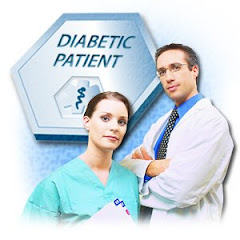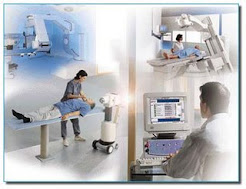
Diabetes is a disease with the abnormal increased of blood glucose level. Where blood glucose levels regulated by the insulin as the hormone produced by the pancreas. Increasing the number of people with diabetes these days is very fast, and many of them do not realize the seriousness of the disease. This is because some people do not feel the emergence of symptoms of diabetes.
There are some common symptoms of diabetes in which a person should consult with their doctor. Especially for people aged more than 45 years, is very important to always check their blood glucose levels every time. The reason why many people do not know that they have diabetes because they underestimate the symptoms of diabetes or do not feel the symptoms.
All types of diabetes actually has similar symptoms and complications at the advanced level. But there are three classic symptoms that could be a marker of diabetes. Three classic symptoms are polyuria (excessive passage of urine), polydipsia (abnormal thirst) and polyphagia (pathological desire to eat). Those initial symptoms related to direct effects of blood sugar levels that are high.
If blood sugar levels reach to above 160-180 mg / dL, the glucose will be up to the urine. If then reach its higher levels, the kidneys remove extra water to dilute a large number of glucose that was lost.
Because the kidneys produce urine in excessive amounts, then the patient often urinate in significant amounts (polyuria). As the result, then the sufferer feel excessive thirst that make them need so much to drink (polydipsia). A large number of calories lost into the urine, patients experienced weight loss. To compensate for these problem, patients often feel tremendous hunger that make them eat so much food (polyphagia).
Other symptoms are blurred vision, dizziness, nausea and decreased endurance during exercise. Patients with poorly controlled diabetes are more susceptible to infection. Because of the severe lack of insulin, so before undergoing several treatments, patients with type I diabetes is almost always lose their weight. But for the majority of type II diabetics do not experience weight loss.
The main factor of Diabetes mellitus is the lack of production of insulin (diabetes mellitus type 1, the first known), or less sensitive of human body's tissues to insulin (diabetes mellitus type 2, a more general form).
In addition, there are types of diabetes mellitus are also caused by insulin resistance that occurs in pregnant women. Type 1 requires insulin injections, while type 2 treated with oral medication and needs insulin only if the medicine is not effective. Diabetes mellitus in pregnancy usually resolves itself after delivery.
Understanding and participation of patients is very important because blood glucose levels continue to change, because the success of keeping blood sugar within normal limits may prevent the complications of diabetes.
Other factors that may reduce complications are: stop smoking, optimizing cholesterol levels, maintain a stable body weight, controlling high blood pressure and blood sugar levels, and regular exercise.
Source: Classic Symptoms Of Diabetes

 Read Via RSS Feed
Read Via RSS Feed




